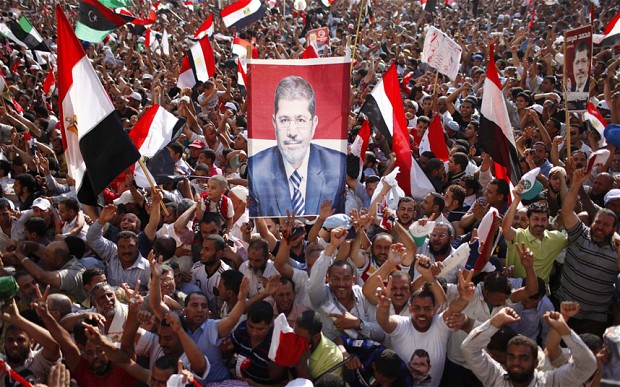What Will The Future Of Egypt Be With Morsi As President?

The new, democratically elected president of Egypt, Mohammed Morsi, an American-educated engineer, has publicly vowed to stand for democracy, to support the rights of women and minority, and, clearly, to empower the people.
If the Egyptian military had appointed its own candidate, electing Ahmed Shafiq to the presidency, its action would have provoked the masses in Tahrir Square to another uprising. It would have led, inevitably, to a bloody confrontation. The election of Mohamed Morsi to the presidency, on the other hand, has prevented Egypt from deviating from its path toward democracy.
However, when it comes to the future of Egypt, difficulties abound. Not only does the Muslim Brotherhood remain inexperienced in the domain of formal domestic and international politics, but it has also never held responsibilty for fixing a nation's economy or for solving a nation's discouraging social problems.
What can we then conclude about the future of Egypt's social, political and economic system, and how should we assess Mohammed Morsi's ability to govern the country?
Today, Egypt faces an important question: Will the new government be able to improve Egypt's economy and help solve its daunting social problems?
Considering the vast amount of power currently held by the military council (SCAF) in Egypt, it is inevitable that the Muslim Brotherhood must enter a new round of negotiations to share that power. While the outcome is still uncertain, the military may choose to limit its demands to protecting its own extensive business interests, its control over the military budget and national security issues, and its immunity from prosecution for any alleged crimes committed during the revolution. It may also seek to constrain the broader powers of the presidency and parliament so that the military would be able to serve as the protectors of the country’s sovereignty.
The Muslim Brotherhood, on the other hand, will have to bear the responsibility if it manages to regain control of the parliament and maintain control of the presidency, but it may have only limited power to fulfill the needs of the people. Morsi will have to contend with a powerful and defiant military council that has the ability to make or break his presidency, as well as the weaker pro-democracy forces that helped to elect him.
It seems as though the new president has been set up to fail. The military council has emptied the presidency of much of its authority. And without a parliament, Morsi will find it difficult to move forward on the country’s two most urgent needs: economic and social stabilization. Thus, not only is it likely that the SCAF will continue to rule Egypt, but the ability of Morsi and his civilian cabinet to govern effectively could be severely restricted.
The disconcerting economic and social problems cannot be solved effectively if there is a persistent struggle for power between the two departments of authority. But, if something goes wrong in the power struggle, it is quite apparent that the people of Egypt will find their way back to Tahrir Square.
Reach Contributor Naina Sethi here.



